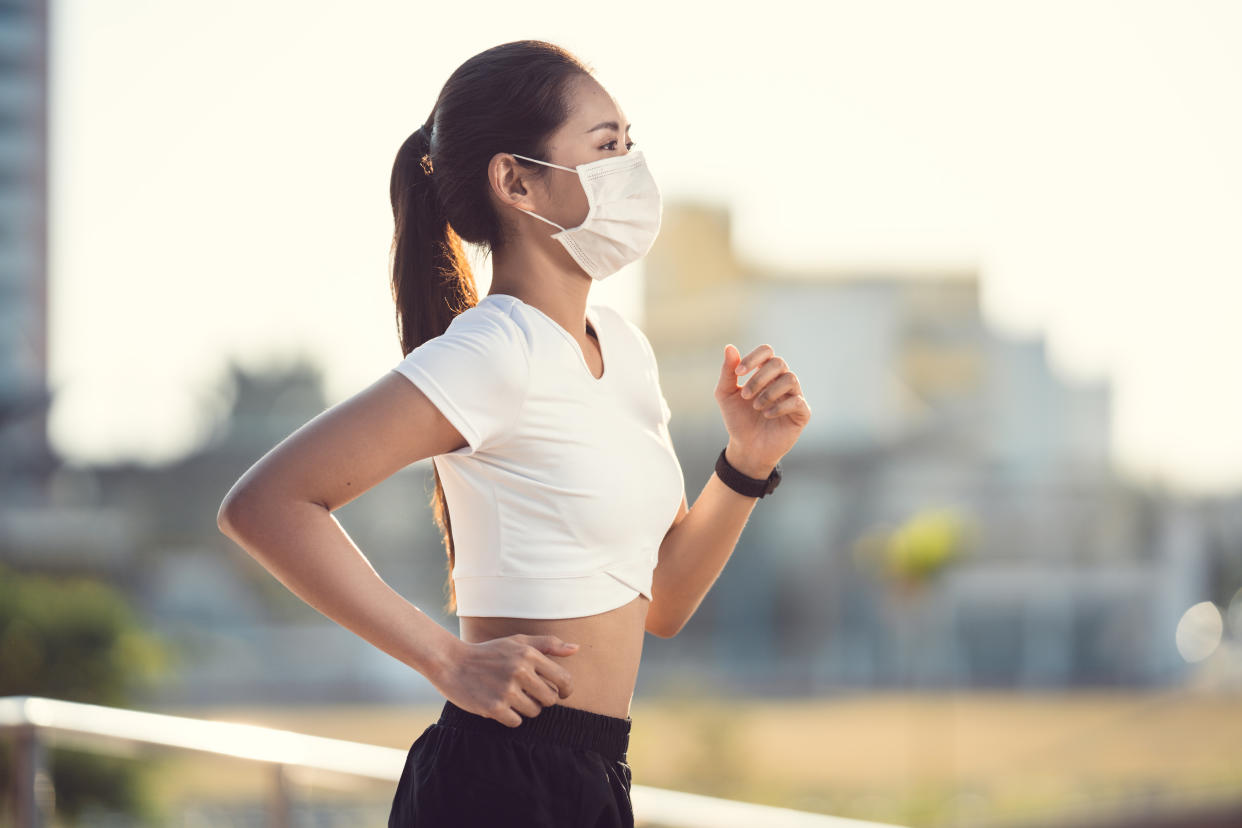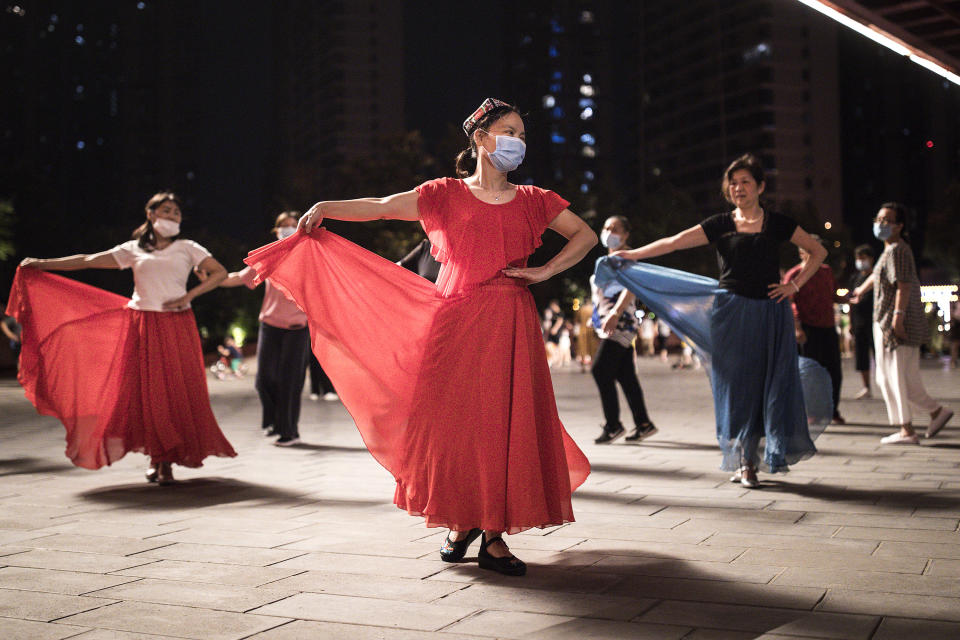Do not wear a mask while exercising, says WHO

The World Health Organization (WHO) has urged people not to wear a mask while exercising in a bid to ward off the coronavirus.
Face coverings are mandatory on public transport in England, while hospital staff are required to wear medical-grade masks.
The advice around masks has been somewhat muddled. The WHO initially said there was no evidence masks ward off a viral airway infection, like the coronavirus, but they may stop patients passing it on.
It has since updated its guidance, claiming face coverings could provide “a barrier for potentially infectious droplets”.
While masks are generally considered beneficial or at least harmless, the WHO has warned they should not be worn while exercising.
Exercise has known benefits for physical and mental health.
At the start of lockdown, Britons were not permitted to leave their home expect for “very limited purposes”, which included a walk, jog or cycle.
The advice has always been to maintain a safe distance from passersby, but never to wear a mask, even if you have a tell-tale coronavirus symptom – fever, cough, or loss of taste or smell.
Britons with a fever, cough or loss of senses are permitted to leave the house to exercise while maintaining social distancing.
The WHO has now warned donning a mask while being active may make breathing uncomfortable.
It recognises laboured breaths as a “serious symptom” of the coronavirus.
By making breathing difficult, wearing a mask while being active may exacerbate the existing symptom.
Sweat may also make a mask wet, further hindering breathing and encouraging the growth of microorganisms, the WHO has warned.
Exposure to microorganisms could trigger an infection that has nothing to do with the coronavirus.
Experts have previously pointed out masks become less effective at warding off viruses when damp, with all of us having moisture in our breath.
With gyms closed for the time being, people are forced to exercise in their home, garden or public spaces.
After following up the contacts of 110 coronavirus patients, scientists from Hokkaido University in Japan found the risk of the infection being passed on was nearly 19 times greater inside than outside.
That being said, breathing heavily while exercising may aid coronavirus transmission, making social distancing all the more important.
While indoors, masks are recommended for those over 60 or people with underlying health issues.
People with coronavirus symptoms and those caring for them are also advised to use this extra protection.
For everyone else, the WHO recommends a fabric covering of “at least three layers of different material” when out and about in confined spaces.
Official guidance states one can be homemade out of an old T-shirt.
These coverings should be combined with other preventative measures, like regular hand washing.

What is the coronavirus?
The coronavirus is one of seven strains of a virus class that are known to infect humans.
Others cause everything from the common cold to severe acute respiratory syndrome (Sars), which killed 774 people during its 2002/3 outbreak.
Since the coronavirus outbreak was identified at the end of 2019, more than 8.3 million cases have been confirmed worldwide, according to Johns Hopkins University.
Of these cases, over 4.1 million are known to have recovered.
Globally, the death toll has exceeded 449,600.
The coronavirus mainly spreads face to face via infected droplets expelled in a cough or sneeze.
There is also evidence it is transmitted in faeces and can survive on surfaces.
Mild cases of the infection have no “set” treatment, with most patients naturally fighting it off.
Those requiring hospitalisation are given “supportive care”, like ventilation, while their immune system gets to work.
The steroid dexamethasone is being used in NHS hospitals to reduce the risk of death among those on ventilators or oxygen.
Coronavirus: what happened today
Click here to sign up to the latest news, advice and information with our daily Catch-up newsletter
Read more about COVID-19
How to get a coronavirus test if you have symptoms
How easing of lockdown rules affects you
In pictures: How UK school classrooms could look in new normal
How public transport could look after lockdown
How our public spaces will change in the future
Help and advice
Read the full list of official FAQs here
10 tips from the NHS to help deal with anxiety
What to do if you think you have symptoms



